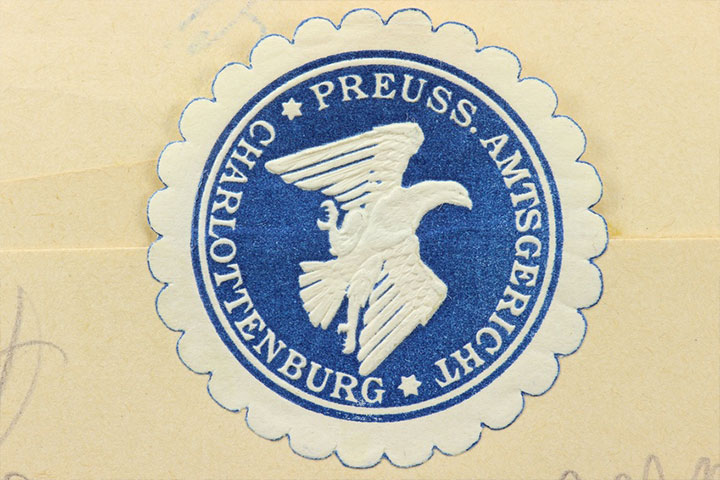
Schmidt & Schmidt provides services for the reclamation of civil status documents, as well as obtaining duplicates, lost or damaged documents in Estonia with their subsequent legalization and translation.
It often happens that civil status documents are lost or damaged, or it is necessary to obtain current copies of documents. In this case, it is necessary to reclaim duplicates of documents. Often, those who have left Estonia face difficulties in this procedure. Our service allows you to reclaim documents in Estonia remotely, and we can provide courier delivery of the document to anywhere in the world.
Validity of civil status documents in Estonia
Civil status documents issued in Estonia are usually valid indefinitely. However, the receiving party may impose time requirements.
When to obtain duplicate documents in Estonia
A duplicate birth certificate, marriage certificate, name change certificate, divorce certificate, criminal record certificate or death certificate may be required to register a marriage abroad, a newborn child, citizenship, inheritance, data verification for pension applications, opening bank accounts, employment and other bureaucratic issues.
What documents can be requested in Estonia
- Birth certificate
- Marriage certificate
- Certificate of change of surname
- Divorce certificate
- Death certificate
- Certificates of good conduct
- Educational documents
- Other civil status documents
Birth certificate
A birth certificate is an official document provided by the Registrar or acting Registrar of the relevant Civil or Consular Register. It verifies details of an individual's birth, including the date, sex, and, if applicable, the time of birth and family relationships.
A child's birth is registered in Estonia if the child is born in Estonia, one of the child's parents was born in Estonia, or both parents are Estonian citizens.
Parents or legal guardians must submit a birth registration application to any local government authority, such as the Vital Statistics Office (Perekonnaseisuamet). Upon successful registration, a birth certificate may be issued free of charge upon request. Certificates can be issued in Estonian, English, German, or French languages.
Fun fact about Estonian tradition, the first visitor to see a newborn holds symbolic significance. It was believed that if the first visitor was young and wealthy, the child would grow up to be prosperous. Conversely, if the visitor was old or poor, it was thought the child might face poverty in the future.
Required documents
- Completed birth registration application form
- Valid ID
- Certificate from the healthcare provider confirming the birth
Marriage certificate
The marriage certificate is the legal record of marriage, used to verify marital status. It is usually required for procedures such as changing the last name, applying for spousal benefits, immigration applications and for inheritance matters. It can be obtained at the Civil Registry Office in the city or town where the marriage took place.
If eligible for marriage, the application submission involves a joint written application to marry at a local Vital Statistics Office (Perekonnaseisuamet). If both individuals have resided in Estonia for at least six months and their vital statistics data are recorded in the Population Register, the application can be submitted online via the e-population register.
Submitting the application online has been possible in Estonia since the end of 2020, making the process more convenient and time-efficient.
Required documents
- Valid ID
- Birth certificates of both spouses
- Documents related to previous marriages (e.g., divorce decrees or death certificates of former spouses / if applicable)
- A certificate of legal capacity to contract marriage (if a prospective spouse’s place of residence is in a foreign state or if they have lived in Estonia for less than six months)
- For non-EU citizens, a document certifying legal stay in Estonia
Divorce certificate
A divorce certificate serves the purpose to verify the legal dissolution of a marriage. It is required for procedures such as remarrying, updating marital status on legal records, immigration applications, and legal matters involving custody, support, or property division.
In Estonia, the process of applying for marriage involves several steps. First, both individuals must be at least 18 years old to be eligible to marry. It is important to note that same-sex marriages are not legally recognized in the country. When submitting the application, both parties must jointly submit a written application to a local Vital Statistics Office (Perekonnaseisuamet). For couples who have lived in Estonia for at least six months and whose details are recorded in the Population Register, the application can also be submitted online through the e-population register, streamlining the process.
Required documents
- Valid ID
- Birth certificates of both spouses
- For non-EU citizens, a document certifying legal stay in Estonia
Criminal record certificate
A criminal record certificate, also known as a police certificate, is a document used to verify an individual's criminal record or confirm the absence of one. It is required for employment in sensitive fields, visa or immigration applications, volunteering, firearm permits and adoption proceedings.
In Estonia, a criminal record certificate, known as the Karistusregistri teade, is an official document issued by the Estonian Punishment Register (Karistusregister).
Estonia is renowned for its advanced digital infrastructure. The ability to apply for a criminal record certificate is simplified through the online (e-toimik.ee) portal which exemplifies the country's commitment to e-governance and digital convenience.
Required documents
- Valid ID
- Completed application form
For international use
If the certificate is to be used abroad, it may require apostille and an official translation into the language of the destination country.
Educational Documents
Foreign educational documents only carry the same legal value as Estonian documents if they are exempt from legalization or have undergone the necessary legalization process. Documents from countries with bilateral agreements with the Estonia republic are fully exempt from legalization. Documents from countries that are part of the Hague Convention of 1961 undergo a simplified procedure called apostille. If neither countries are part of the convention or have bilateral agreements they undergo consular legalization















































